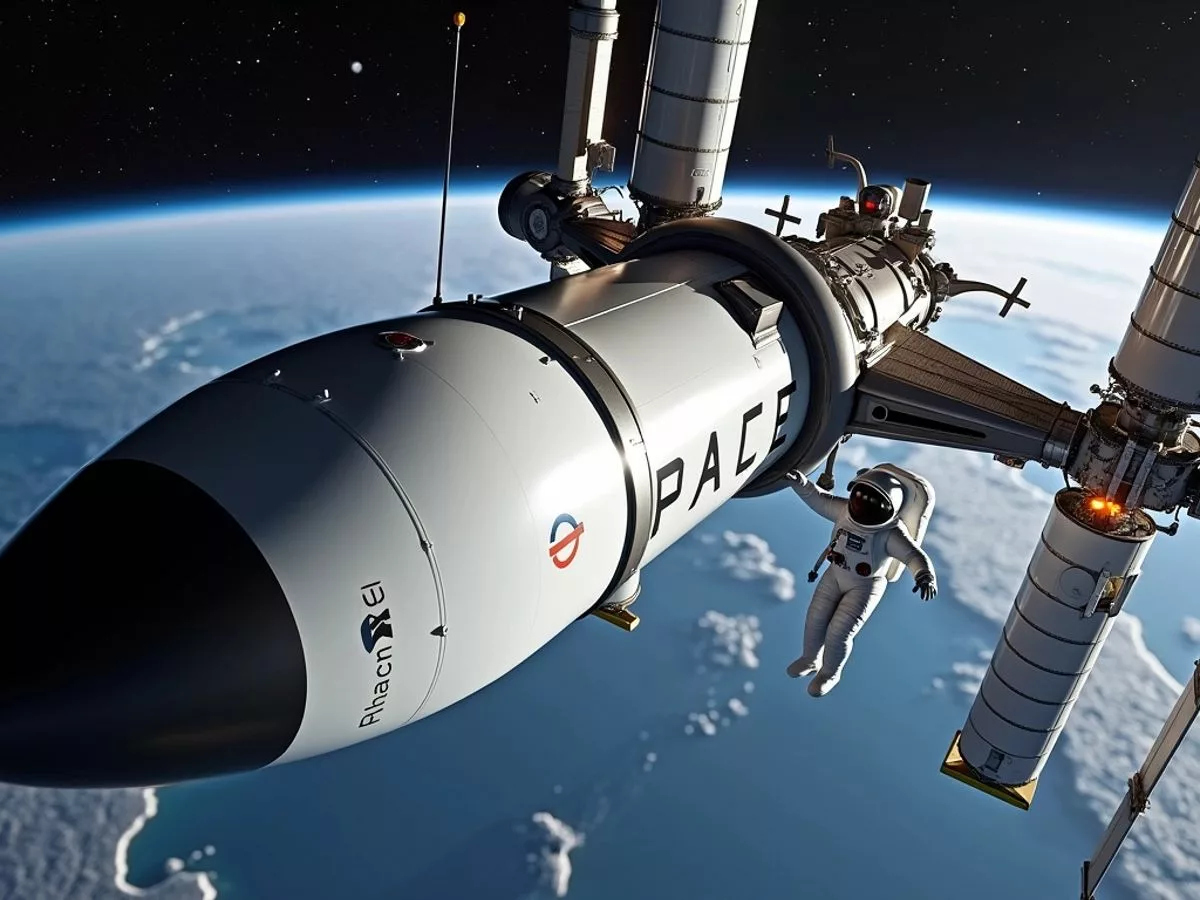
A SpaceX Falcon 9 rocket successfully docked with the International Space Station (ISS) on September 29, 2024, to facilitate the return of two astronauts stranded in orbit. NASA astronaut Nick Hague and Russian cosmonaut Alexander Gorbunov embraced their fellow crew members upon arrival, marking a significant milestone in space travel and collaboration.
Key Takeaways
- SpaceX’s Crew-9 mission successfully docked with the ISS on September 29, 2024.
- NASA astronaut Nick Hague and Russian cosmonaut Alexander Gorbunov joined the ISS crew after a five-month stay.
- The return mission is set for February 2025, bringing back two astronauts who faced extended stays due to spacecraft issues.
The Launch and Docking
The Falcon 9 rocket lifted off from Cape Canaveral, Florida, at 1:17 PM on September 28, 2024. The Crew-9 mission, aboard the Dragon spacecraft, made contact with the ISS at 5:30 PM the following day. After a successful docking, Hague and Gorbunov boarded the station around 7:00 PM, greeted warmly by the ISS crew.
Station commander Suni Williams welcomed the new arrivals, stating, "I just want to say welcome to our new compadres from Dragon Freedom. Alex, welcome to the International Space Station, and Nick, welcome back home."
The Stranded Astronauts
Hague and Gorbunov’s arrival is particularly significant as they will be returning to Earth with two astronauts who have been stranded on the ISS for an extended period. NASA’s Butch Wilmore and Suni Williams were initially scheduled for an eight-day mission but faced complications with their Boeing-designed Starliner spacecraft.
- Initial Mission Duration: 8 days
- Extended Stay: 8 months due to spacecraft issues
Spacecraft Challenges
The Starliner, which was making its first crewed flight, encountered propulsion system problems during its journey to the ISS. After extensive testing and evaluation, NASA decided to return the Starliner to Earth without its crew, opting instead to utilize SpaceX’s Crew-9 mission for the return of Wilmore and Williams.
SpaceX’s Role in ISS Operations
SpaceX, founded by billionaire Elon Musk, has been a key player in the transportation of astronauts to and from the ISS. The company has been conducting regular missions every six months to facilitate crew rotations. The Crew-9 mission was initially scheduled for mid-August but faced delays due to the need for further evaluations of the Starliner and the impact of Hurricane Helene.
Looking Ahead
Hague and Gorbunov are expected to spend approximately five months aboard the ISS, while Wilmore and Williams will have spent eight months in total by the time they return. During their stay, Crew-9 will conduct around 200 scientific experiments, contributing to ongoing research in space.
This successful docking not only highlights the capabilities of SpaceX but also underscores the importance of international collaboration in space exploration. As the space community continues to evolve, missions like Crew-9 pave the way for future endeavors beyond Earth.


